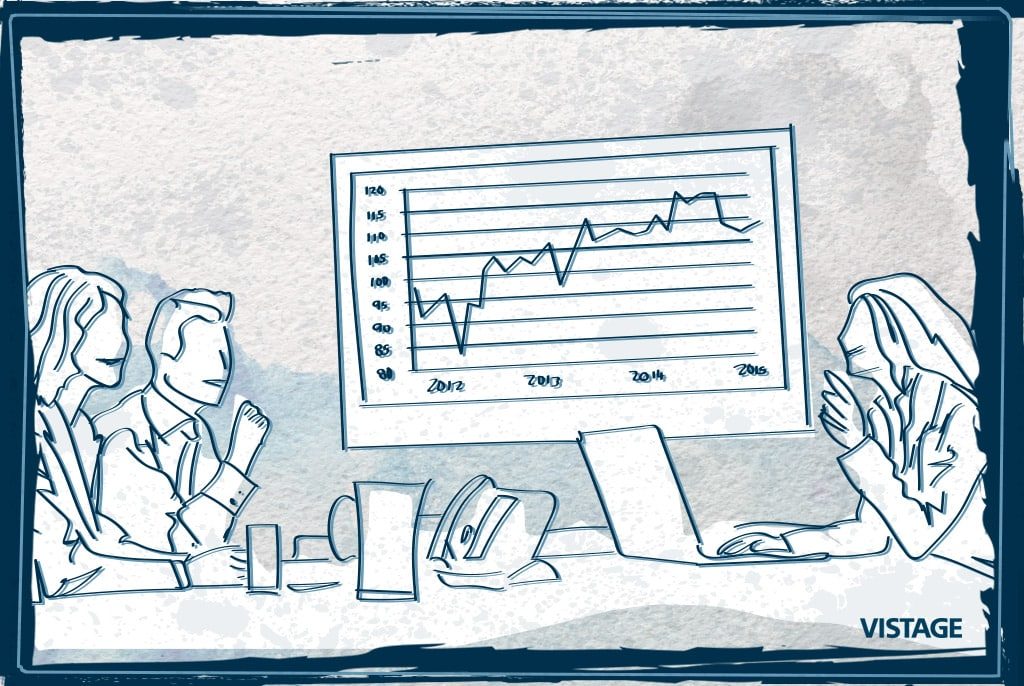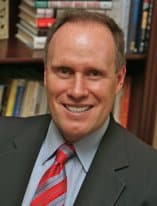The Economics of Trust with Stephen M.R. Covey

 Stephen M.R. Covey presented the final keynote of Vistage’s 2013 Think Big Conference in Grapevine, Texas. Covey opened with a touching tribute to his father, Stephen Covey, who passed away in 2012 after a lifetime of inspiring business leaders. Where his father was most famous for his behavioral book, The Seven Habits of Highly Effective People, his son has made a name for himself talking to business leaders about the importance of trust.
Stephen M.R. Covey presented the final keynote of Vistage’s 2013 Think Big Conference in Grapevine, Texas. Covey opened with a touching tribute to his father, Stephen Covey, who passed away in 2012 after a lifetime of inspiring business leaders. Where his father was most famous for his behavioral book, The Seven Habits of Highly Effective People, his son has made a name for himself talking to business leaders about the importance of trust.
Covey says trust is a new form of currency. This currency can be hard to find, especially with the current lack of trust in major institutions like banks and governmental leaders. I know this personally, as Covey also pointed out, that many parents are at a lack for solid role models to point to in popular culture for children. This erosion of trust as a social problem is not as much what concerns Covey. His concern is the drain on business when trust is not a central tenet in a company’s culture.
He showed a video featuring a monetary ticker spinning out of control representing all of the dollars lost when businesses fall victim to trust deficiencies. He offered a simple formula to illustrate his point. For example, when trust levels are diminished, a company’s energy and general happiness are also significantly lowered. We have probably all experienced a low trust, low energy environment like this at one point in our careers.
Covey offered what he called Three Big Ideas about trust:
- Trust is an economic driver, not merely a social value.
- Trust is the #1 competency of leadership needed today.
- Trust is a learnable competency.
Covey believes corporate training and development targeted at training people in trust should be mandatory. His company does just this type of training, which you can learn more about at speedoftrust.com . I buy Covey’s premise and have personally seen the negative effects of low trust in an organization. If you are strictly a numbers person, Covey says amping up the trust will boost your numbers. He said high trust organizations outperform low trust organizations by 286 percent in total return to shareholders.
He said it is the job of leaders to find the right balance between too much trust and too little. If you have too much trust, you will get taken advantage of; too little and you will be a paranoid leader with a very small bullpen of trusted advisors. How to find the right balance? Covey calls this “smart trust,” and says it is a balance you must find yourself.
In the closing Q&A, an audience member asked what a leader could do if trust is damaged. Covey says the only way to repair the harm caused by bad behavior is earning back trust by not repeating the bad behavior. The bad news, if you are a leader, is this process is not quick. A simple apology, no matter how heartfelt, will fit the bill. You are probably able to recall a time in your professional career where an employee challenged your trust, but was able to earn it back. It was likely not a quick recovery. It works the same way with your own staff members or customers.
He closed with an example from Confucius. Confucius was once asked what his politics were. Confucius replied, “It is to provide food, protect people with armaments, and gain trust from people.” The questioner asked further, “Which should we abandon first if our country is forced to abandon food, weapons, or trust?” Confucius replied, “Abandon weapons first, then food. But never abandon trust. People cannot get on without trust. Trust is more important than life.”
Category: Leadership Competencies
Tags: Balance, Business, Development, Leadership

